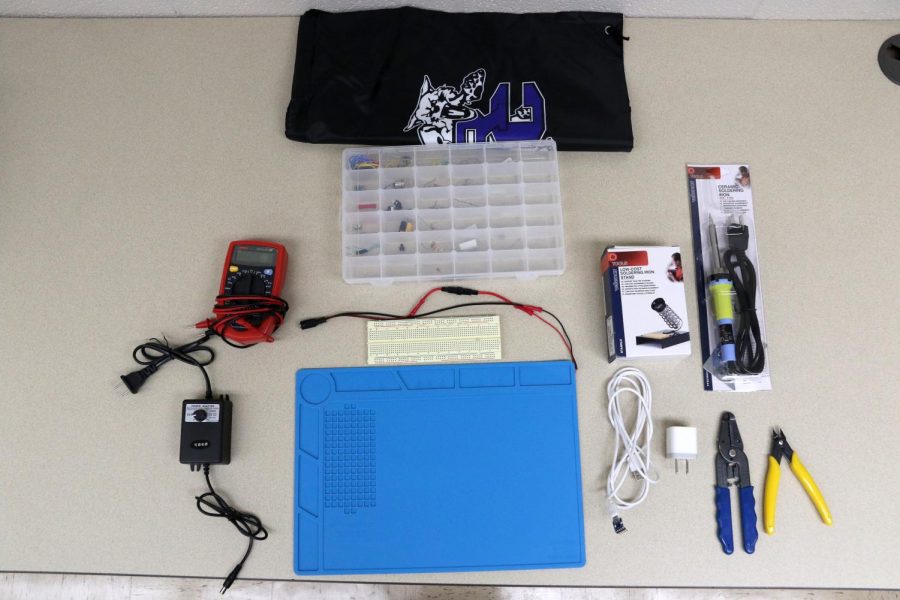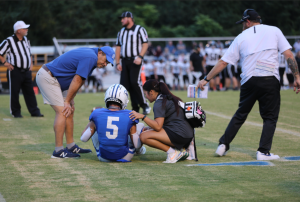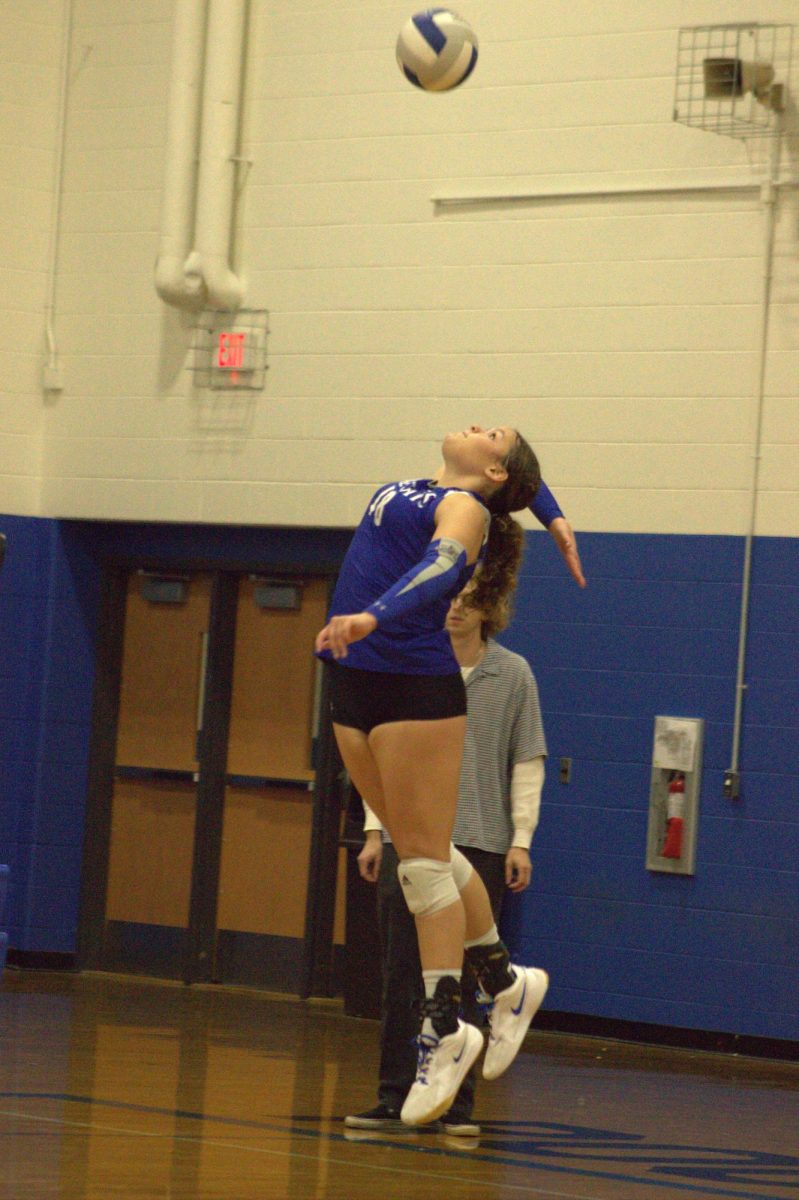CTE Students Receive Home Kits
October 8, 2020
This fall, CTE classes such as Electronics and Robotics Technology are sending “Home Instructional Kits.” The purpose of these kits is to give students taking the class the ability to learn just as much outside of school as they would if the year was proceeding normally. Paige Owens is the supervisor of the CTE classes.
“Mr. Jarvis is the instructor of Electronics and Robotics Technology. He put together all of the electronic components, tools, and equipment that students use in his classroom in a normal school year,” said Owens. “He packaged them up in a bag and sent them home with the students to use to be able to do just about everything they would normally do in class.”
The students in Jarvis’s class watch his instructional videos on how to do things such as building circuits with the kits. With this information, they try it themselves with the contents of the Home Instructional Kits and send either pictures or videos of the finished product to Jarvis for a grade.
Jarvis has two methods that he uses to engage his students in the hands-on skills for Electronics and Robotics Technology courses. These methods are called the “Home Kit” and the “Mobile Classroom.” The “Home Kit”provides the tools, equipment, and components necessary for students to complete most of the course Lab exercises at home. A kit is available for each student. The kit includes a parts box with components like a thermal mat, safety glasses, a digital multimeter, a 5V charge block, a USB cable, wire strippers, a soldering iron, and various other cables and boxed projects.
“I scheduled Home Kit ‘pick-up days’ and distributed the kits in a ‘curbside pickup model’ out on the sidewalk near the Floyd S. Kay entrance of the RCHS building,” said Jarvis. “Once students have the kit, they will be able to set up an Electronics Workbench somewhere in their home. Currently, about 70 out of 75 kits have been distributed. I am providing video lessons through Google Classroom that will guide the students through each Laboratory Lesson.”
The “Mobile Classroom” is an outdoor setup of canopy tents that allows socially distanced in-person lab exercises. There have been two successful Mobile Classroom events so far.
“This was a very daunting task for Mr. Jarvis, but it is a truly exceptional method of instruction,” said Owens. “It allows his Electronics students to get a genuine Electronics experience in a virtual environment.”







